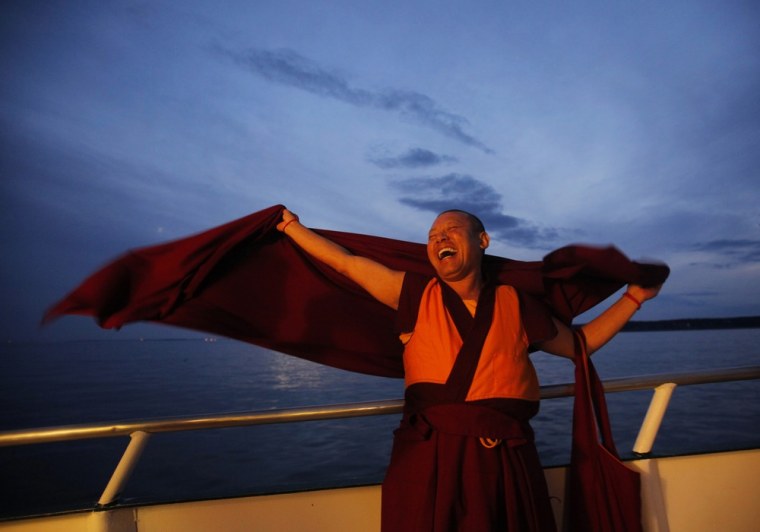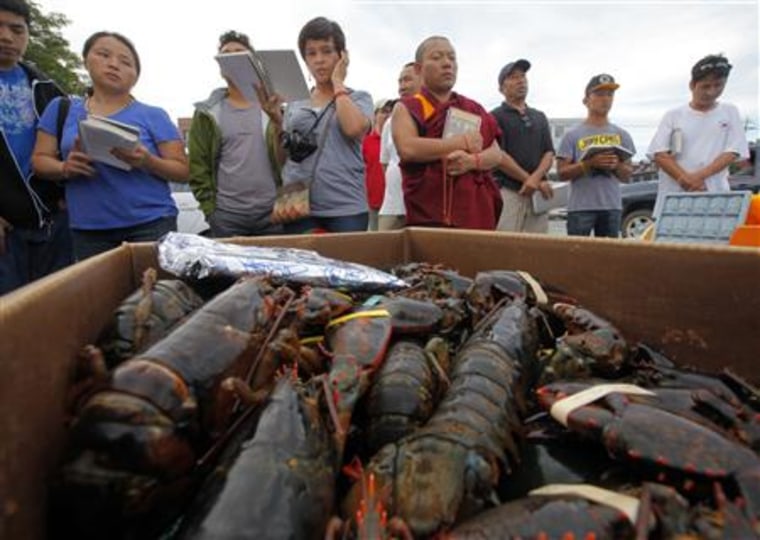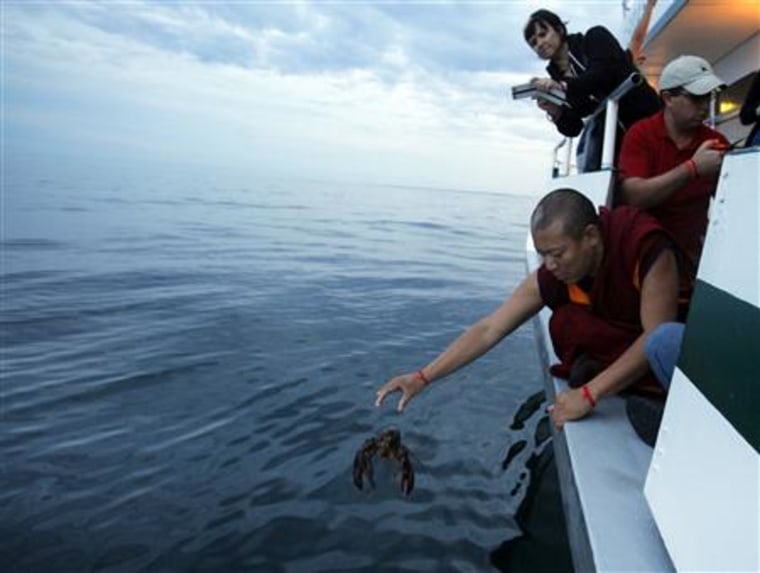Instead of plunging headfirst to their death in a pot of boiling water, 534 live lobsters escaped the dinner plate and belly flopped to freedom into the dark waters of the Atlantic Ocean.
A group of Tibetan Buddhists flanked the sides of a whale-watching boat at dusk on Wednesday, sprayed the lobsters with blessed water, clipped the bands binding their dangerous claws and gently released them one by one into the deep water below.
The 30 Buddhists of all ages trekked to the North Shore beach community known for its massive lobster hauls to purchase 600 pounds of lobster from a seafood wholesaler and save the critters from imminent death.
The lobster liberation was scheduled specifically for Aug. 3, which is Wheel Turning Day on this year's Tibetan lunar calendar, the anniversary of the first sermon Buddha taught. On this holiday, the merit for positive actions is multiplied many times.
"Even if they get captured again, they've had a longer life," said Wendy Cook, a yoga instructor and former director at the Kurukulla Center for Tibetan Buddhist Studies in Medford, Mass., a town just north of Boston.

If not for the liberation, "you know they are going to be shipped to restaurants and headed to the boiling pot," she said.
Buddhists from the Kurukulla Center typically liberate masses of the expensive seafood a couple times each year.
Cook led a ceremony ahead of the liberation that included prayers, mantras and walking the 13 boxes of lobsters in circles around a display of blessed objects. These important steps develop a karmic connection for the animals' future lifetimes and help ease future suffering, she said.
Among those setting the lobsters free was Vikrant Bhasin, a chef from Cambridge, Mass., who called the life-giving experience "beautiful."
Bhasin no longer cooks live shellfish.

Monk Geshe Tenley, Kurukulla Center's resident teacher, who was wearing a saffron robe, was the first to release a lobster from the deck of the whale watching boat that had cruised out nearly a mile offshore, past a maze of lobster traps.
In India, Geshe Tenley said, cows, sheep and even goats are purchased and saved from slaughter. But here in New England, saving the lobsters and extending their lives — even if just for an hour — is most practical and a real way the group can make a difference in the lobsters' existence and their own.
Victoria Fan, a graduate student from Cambridge, was participating in her first lobster liberation.
"It's rethinking the way you normally see these creatures," she said of the ceremony that took place steps away from a sign advertising lobster dinners for just $15.99.
"You're supposed to view them equally. Their happiness is as important as your happiness, their suffering is as important as your suffering," Fan said.
